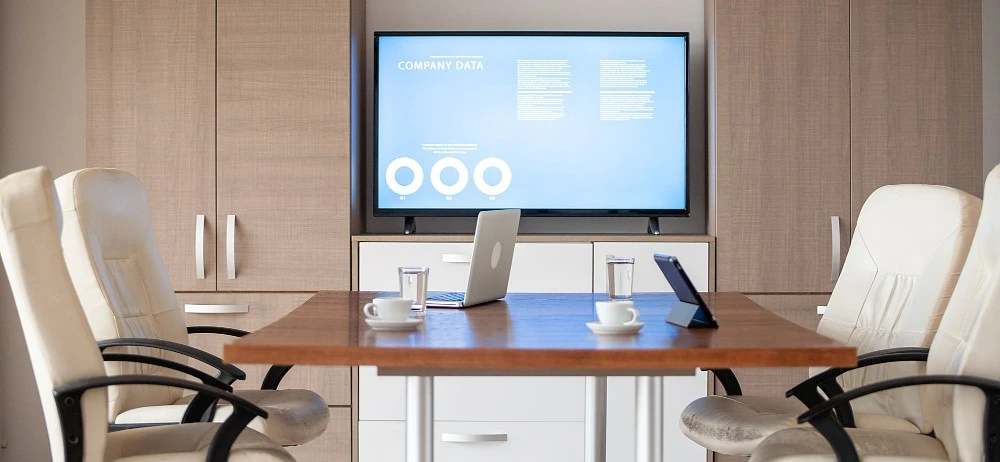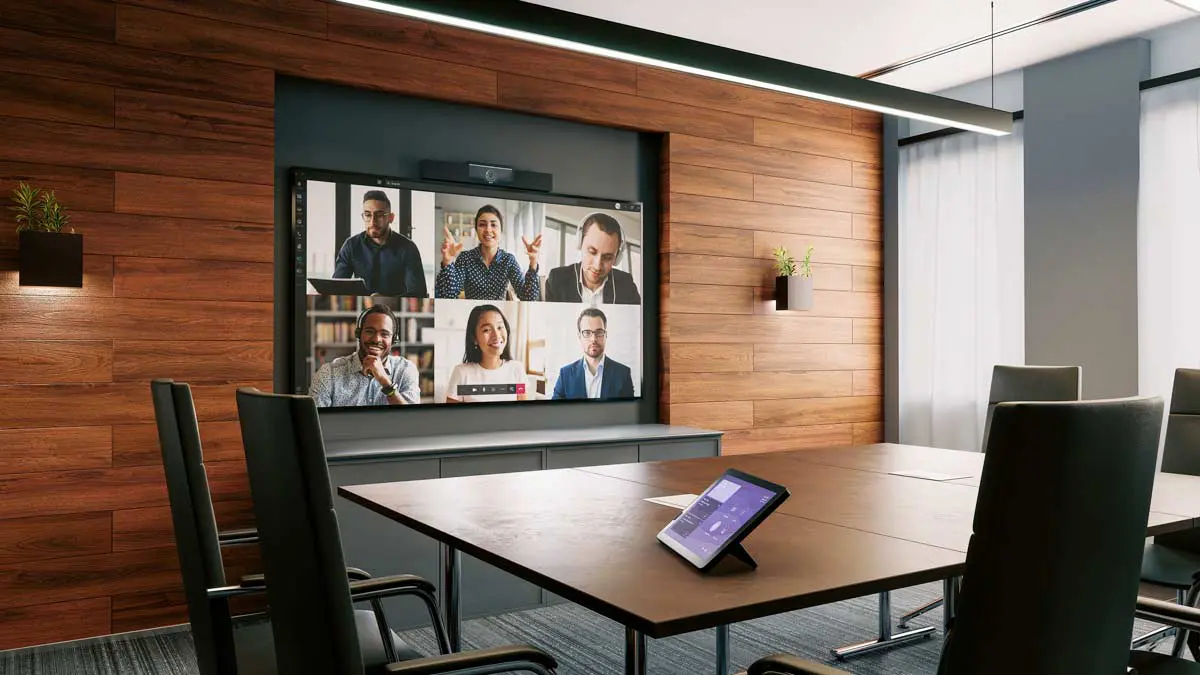Today’s global teams need to be able to collaborate anywhere. But with employees now working in a hybrid manner, conducting effective meetings is becoming a widespread issue. Although the new model offers high levels of flexibility to employees, ensuring hybrid collaboration is getting increasingly harder for business leaders. In most organisations, there is a growing imbalance between onsite employees and their remote counterparts, with those working from home feeling “left out” and “disengaged”.
The Problems with Modern Meetings
Bringing office and remote workers together in the hybrid world, although critical, is also extremely challenging. Let’s look at the most widespread problems with modern meetings:
Lack of Participation
A recent study by Microsoft revealed how the number of weekly meetings for the average Teams user grew 153% between 2020 and 2022. This has led to increased dissatisfaction among employees since they are left with little or no time to perform their duties and meet their objectives. Many are therefore found multitasking during meetings, either sending emails, communicating privately with peers, or finishing the tasks for the day. All of this eventually leads to poor participation, which adds little value to meeting outcomes.
Reduced Attention Span
The employee of today doesn’t have the attention span they had, say, five years ago. Most admit to witnessing their attention spans nose-diving over the years; those who could immerse themselves in a task for hours at a stretch now find it difficult to focus even for a few minutes. In the modern workplace, leaders are increasingly struggling to cater to this dwindling attention span, especially in marathon meetings that have several participants across different seniority levels joining from different locations and departments.
Different Time Zones
As the hybrid workplace model continues to take the business world in its embrace, catering to employees working from different time zones is an escalating challenge. For businesses with a fully-remote global workforce, with employees spread across continents, scheduling meetings at a common hour can be tough. While some participants would have to wake up at an extremely early hour, others might have to stay up very late to attend.
Technical Issues
With many employees still working from their homes, technical issues tend to play spoilsport. During virtual meetings, these issues commonly show up both for facilitators and participants — potentially impacting the success of collaborating with the team. From bad connections to echo, poor sound quality to sluggish video, and dropped calls to system incompatibility – there are several reasons why the productivity of virtual meetings may suffer.
In the hybrid workplace era, leaders are also struggling to maintain the level of privacy and security, given the different devices, locations, and networks employees use to engage with peers and share corporate information.
Striking the Perfect Balance Between Onsite and Remote Employees
In 2023, many organisations will witness a percentage of their workforce coming back to the office. While it’s always good to have people work together in a physical environment, striking the perfect balance between onsite and remote employees will be a growing challenge for leaders in the coming year(s).
How can leaders inspire people to prioritise in-person time together? How can they ensure onsite and remote employees sustain a social connection – despite being connected only virtually? How do they offer the same level of flexibility and autonomy around how, when, and where they attend meetings from?
Making Meetings More Effective
With the hybrid workplace model here to stay, business leaders must implement meeting solutions that promote collaboration – and not cause dissatisfaction or burnout. Today’s modern meetings need modern solutions that enable organisations to stay agile – even as teams expand globally and work cultures become increasingly hybrid.
Since ineffective meetings lead to several issues across low morale, wasted time, and poor efficiency, having solutions that transcend spaces and connect people across multiple locations and devices is critical. If you want to make virtual meetings more effective, here are some things to keep in mind:
1. Unified Communications
Implementing a unified communications platform that integrates diverse communication tools and applications across your business environment into one single solution can enable teams to seamlessly engage in video conferencing, screen sharing, and instant messaging and better collaborate with peers.
2. Whiteboards
Encouraging the use of modern whiteboard tools like Samsung Flip that double up as a screen for instant meetings can pave the way for richer visualisation and collaboration, giving participants the feeling of working together under the same roof.
3. AV
Investing in an advanced AV solution that combines the latest high-end technology with flawless connectivity and superior quality is a great way to facilitate quick, high-impact discussions between key decision-makers. By avoiding problems of blurred visuals and lagging sound, you can maintain the morale of participants and enable them to contribute effectively to the meeting.
4. Analytics
Integrating analytics into your meeting solution can allow you to spot bottlenecks and identify opportunities to improve meeting quality and employee engagement. You can also leverage reports to measure all aspects of your meetings, from quality and performance to engagement and participation.
5. Meeting Rooms
Empowering employees to collaborate from anywhere using platforms like Microsoft Teams Rooms can help bridge the gap between in-person and remote attendees and ensure everyone is seen and heard. Furthermore, solutions like Zoom Rooms that come equipped with Scheduling Display software can allow users to easily book meeting spaces, see the names of participants, and view meeting calendars for each room.
In a Nutshell
Most meeting platforms today are ill-equipped with modern capabilities, leaving hosts and participants frustrated with technical issues. If you want to transform meeting experiences, fuel high levels of engagement, and make them worth everyone’s time, you need to work toward enabling equity for each meeting participant – whether they connect with other participants from a conference room or remotely from their homes.
The right technologies, features, and solutions can offer best-in-class security, maximize meeting efficiency, and drive favorable meeting outcomes. Connect with us to learn more.



